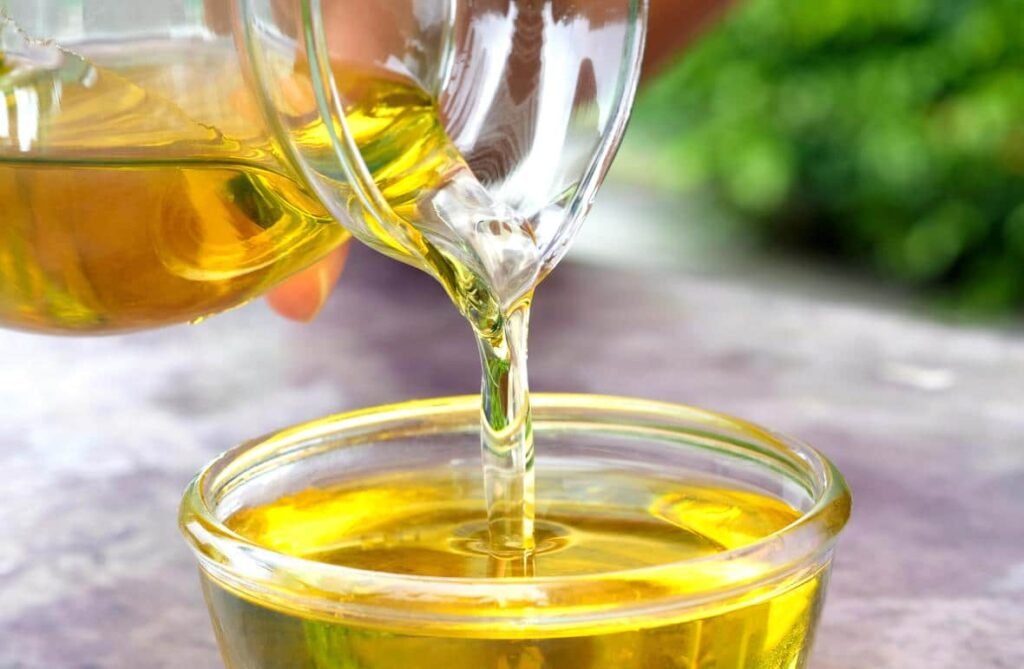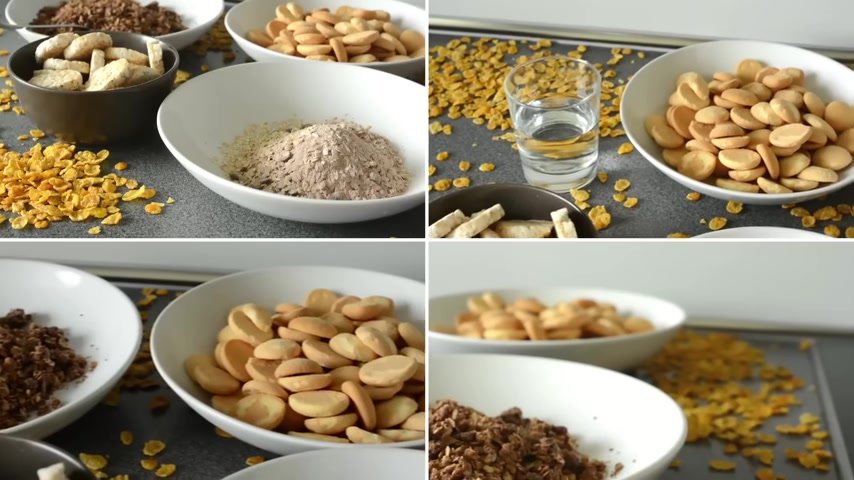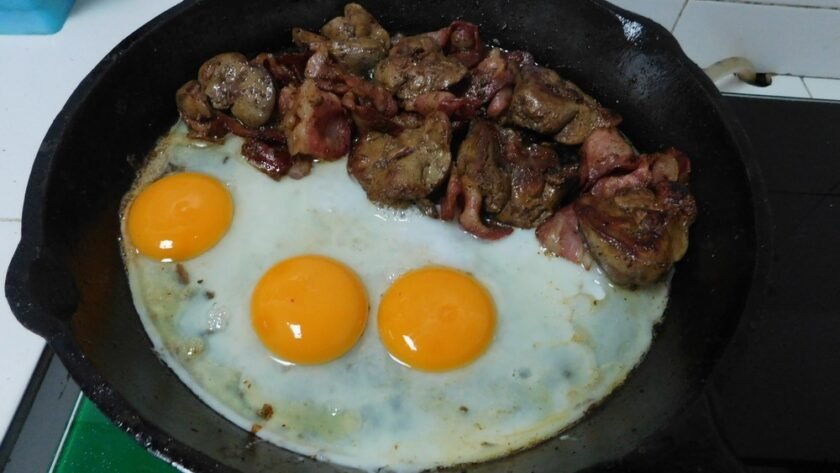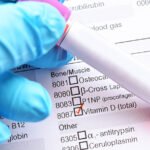Table of Contents
Can liver and egg yolks improve fatty liver?
- Yes, consuming liver and egg yolks can improve fatty liver conditions
- These foods are rich in choline, which is essential for liver health
What is choline and why is it important?
- Choline is a nutrient related to B vitamins
- It’s crucial for keeping fat out of the liver
- Choline is important for cell membranes, brain function, and fetal development
Causes of fatty liver
- Excessive sugar and refined carbohydrate consumption
- Alcohol consumption
- Vegetable oils
- Choline deficiency
How can you identify fatty liver?
- Best method: Liver ultrasound
- Simple indicator: Presence of a “gut” or excess abdominal fat
Foods are high in choline
- Egg yolks (organic, pasture-raised)
- Liver and liverwurst (grass-fed)
- Poultry meat
- Cruciferous vegetables
- Certain nuts (almonds, pecans, pistachios)
- Grass-fed dairy products
How do other nutrients interact with choline?
- Adequate folate and B6 can reduce the need for choline
- Deficiency in folate and B6 increases choline requirements
Is it safe to consume fatty foods for liver health?
- Yes, when consumed without sugar and refined carbohydrates
- These foods can improve choline levels and reduce liver fat
- Avoid combining choline-rich foods with sugar and refined carbs
So let’s dive into the details…
Contrary to popular belief, certain fatty foods like liver and egg yolks can actually help improve fatty liver conditions. This article explores the role of choline, a vital nutrient found in these foods, and its impact on liver health. We’ll delve into the causes of fatty liver, the importance of choline in our diet, and the best food sources to support liver function.
The Surprising Connection Between Liver, Egg Yolks, and Fatty Liver

Did you realize that if you eat liver and egg yolks you can actually improve a fatty liver? Yeah, let me explain. Now beef liver or any liver for that matter (and I’m talking about grass-fed, not your commercial liver) and egg yolks have choline.
Now choline is in the family of B vitamins. It’s not really a B vitamin because it works with the complex, but if you’re deficient in choline, that could set you up to actually cause a fatty liver.
So choline is very essential to keep the fat out of the liver.
- Liver and egg yolks contain choline
- Choline is essential for preventing fatty liver
- Grass-fed liver is preferred over commercial liver
Causes of Fatty Liver
Other things can cause fatty liver as well. Consuming too much sugar, refined carbohydrates (especially fructose), alcohol will cause a fatty liver.

Vegetable oils can cause a fatty liver. But the second cause of non-alcoholic fatty liver disease is a deficiency of choline.
- Excess sugar and refined carbs can cause fatty liver
- Alcohol and vegetable oils are also contributors
- Choline deficiency is a major cause of fatty liver
The Importance of Choline in the Body

The majority of choline in the body is there to make these membranes in the cell. It’s also intimately involved in brain function.
So if you don’t have enough choline, your memory can suffer, your mental acuity can suffer. Also, if a woman is pregnant and they’re deficient in choline, you can have problems with brain development. So choline is very important in the nervous system, the brain, and cellular membranes.
- Choline is crucial for cell membrane formation
- It plays a vital role in brain function and memory
- Essential for fetal brain development during pregnancy
Other B Vitamins and Their Relationship to Choline

These are two other B vitamins: folate and b6. If you have enough folate and b6, the need for choline will be less. If you’re deficient in folic acid and b6, you’ll need more choline.
- Folate and B6 interact with choline metabolism
- Adequate folate and B6 can reduce choline requirements
Identifying Fatty Liver

But I do want to make a note: one of the best ways to determine if you have a fatty liver is to take an ultrasound of the liver, and you can actually pick it up real fast. But a much simpler way is just to look down. If you see that you have a gut, chances are you have a fatty liver.
- Ultrasound is an effective method to detect fatty liver
- Presence of a “gut” often indicates fatty liver
Foods High in Choline

So you want to start consuming foods high in choline. Egg yolks – I consume four eggs every single day. I make sure that they’re organic pasture-raised (not pasteurized, pasture-raised – very important).
I usually get my eggs from the farmers market. Liver, liverwurst – I put a link down below of a great company, US Wellness Meats, that has an incredible liverwurst that has also not just liver grass-fed, but it has heart and kidney as well.
Poultry meat in general, cruciferous vegetables (so for those of you that don’t like liver or you’re vegan, you can consume more cruciferous vegetables to get your choline).
peanuts (however, I don’t recommend peanuts, you could have a little bit, but you want to do more like almonds, pecans, pistachios, things like that because there’s some other problem with peanuts), and dairy (so if you were to consume some grass-fed cheese, that would have choline as well).
- Egg yolks (organic, pasture-raised)
- Liver and liverwurst (grass-fed)
- Poultry meat
- Cruciferous vegetables
- Nuts (almonds, pecans, pistachios preferred over peanuts)
- Grass-fed dairy products
Balancing Fatty Foods with Carbohydrates

So even though this is counterintuitive because it goes against what we’re taught (you know, all these fatty foods), you would think that that turns into fat in the liver.
It doesn’t, because you’re not consuming the sugars and refined carbs. So anytime you consume these foods, you never want to consume them with sugar and refined carbs because that’s going to create the problem.
But in the absence of sugar and excessive carbohydrates, these are fine, and it actually is going to improve your choline and decrease the fat in your liver.
- Fatty foods don’t necessarily cause fatty liver
- Avoid combining choline-rich foods with sugar and refined carbs
- Proper balance can improve choline levels and reduce liver fat
Summary
Dr. Berg explains how eating a grass-fed liver and egg yolks help improve fatty liver. Deficiency in choline could cause Non-Alcoholic fatty liver or fatty liver. Grass-fed liver and egg yolks have choline which is essential to keep the fat out of the liver. Choline is also intimately involved in brain functions. If you have enough folate and B6, the need for choline would be less.
Things that Cause Fatty Liver:
- Consuming too much sugar and refined carbohydrates
- Alcohol
- vegetable Oils
Functions of Choline:
- Cell Membranes
- Brain Function
- Brain Development (Pregnancy)
- Nervous System
- Muscle
Foods High in Choline:
- Egg Yolks – Pasture-raised Organic
- Liver – Grass-fed
- Poultry
- Meat
- Cruciferous Vegetables
- Peanuts
- Dairy
DATA
https://www.ncbi.nlm.nih.gov/pmc/articles/PMC3601486
https://www.ncbi.nlm.nih.gov/pmc/articles/PMC3756977
FAQ
What are the best foods to heal a fatty liver?
To promote liver health and potentially reverse fatty liver disease, consider incorporating the following foods into your diet:
- Leafy greens: Spinach, kale, and other greens are high in nutrients and antioxidants that support liver function.
- Fatty fish: Salmon, mackerel, and sardines are rich in omega-3 fatty acids, which can reduce liver fat levels.
- Nuts and seeds: Almonds, walnuts, and flaxseeds provide healthy fats and are beneficial for liver health.
- Whole grains: Foods like oats, quinoa, and brown rice are high in fiber and can help reduce liver fat.
- Fruits and vegetables: Berries, beets, and cruciferous vegetables (like broccoli) are packed with antioxidants that protect the liver[2][4].
What is the best breakfast to reduce fatty liver?
A liver-friendly breakfast should focus on high-fiber, low-sugar options. Consider the following:
- Oatmeal topped with berries: Provides fiber and antioxidants.
- Smoothies with spinach and avocado: Packed with nutrients and healthy fats.
- Whole grain toast with avocado: Offers healthy fats and fiber.
- Greek yogurt with nuts: A good source of protein and healthy fats without added sugars[3][4].
What is the superfood for liver?
Several superfoods are particularly beneficial for liver health:
- Garlic: Contains compounds that activate liver enzymes and help flush out toxins.
- Turmeric: Known for its anti-inflammatory properties, it can reduce liver inflammation.
- Green tea: Rich in catechins, it has been shown to improve liver function and reduce fat accumulation.
- Beetroot: Supports liver detoxification and reduces inflammation.
- Cruciferous vegetables: Such as broccoli and Brussels sprouts, which aid in detoxification processes[4][5].
Foods to avoid with fatty liver
To manage fatty liver disease, it is crucial to avoid certain foods:
- Sugary foods and drinks: Such as sodas and candies, which can increase liver fat.
- Processed meats: Bacon, sausages, and deli meats are high in saturated fats.
- Refined carbohydrates: White bread, pastries, and other refined grains can contribute to fat accumulation.
- Fried foods: High in unhealthy fats that can worsen liver conditions.
- Alcohol: Should be avoided as it can exacerbate liver damage[2][3].
What foods are good for liver repair?
Foods that support liver repair include:
- Legumes: High in fiber and protein, they help improve liver function.
- Healthy fats: Avocados and olive oil provide essential fatty acids that support liver health.
- Whole grains: Such as brown rice and quinoa, which help maintain stable blood sugar levels.
- Fruits: Especially those low in fructose, like berries, which are high in antioxidants[2][3].
Bad food for liver
Foods detrimental to liver health include:
- High-sugar foods: Can lead to fat accumulation in the liver.
- Trans fats: Found in many processed snacks and fried foods, these can increase liver fat and inflammation.
- Excessive salt: Can lead to fluid retention and worsen liver conditions.
- High-calorie foods: Such as fast food, which can contribute to obesity and fatty liver disease[2][3].
Fruits to avoid for fatty liver
While fruits are generally healthy, those high in fructose should be limited:
- Bananas: High in sugar compared to other fruits.
- Grapes: Also high in sugar.
- Mangoes: Contain significant amounts of fructose.
- Dried fruits: Concentrated sugars can lead to increased liver fat[2][4].
How to reduce fatty liver quickly
To quickly reduce fatty liver, consider these strategies:
- Adopt a balanced diet: Focus on whole foods, high in fiber and low in sugar.
- Increase physical activity: Aim for at least 150 minutes of moderate exercise per week.
- Stay hydrated: Drink plenty of water to support liver detoxification.
- Limit alcohol consumption: Avoid or significantly reduce alcohol intake.
- Consult a healthcare provider: For personalized dietary and lifestyle changes[2][3].
7-day meal plan for fatty liver
A sample 7-day meal plan for fatty liver may include:
- Day 1: Oatmeal with berries, grilled chicken salad, steamed vegetables.
- Day 2: Smoothie with spinach and avocado, quinoa with black beans, baked salmon.
- Day 3: Whole grain toast with avocado, lentil soup, roasted vegetables.
- Day 4: Greek yogurt with nuts, stir-fried tofu and broccoli, brown rice.
- Day 5: Scrambled eggs (limited yolks), mixed vegetable salad, grilled fish.
- Day 6: Chia pudding with fruits, vegetable soup, quinoa salad.
- Day 7: Whole grain pancakes with berries, baked chicken, steamed asparagus[2][3].
How to make your liver healthy again
To restore liver health:
- Eat a balanced diet: Focus on whole foods, lean proteins, healthy fats, and plenty of fruits and vegetables.
- Exercise regularly: Aim for at least 30 minutes of moderate activity most days.
- Stay hydrated: Drink plenty of water to help your liver function efficiently.
- Limit alcohol and processed foods: These can increase liver fat and inflammation.
- Consult a healthcare provider: For personalized advice and monitoring of liver health[2][4].




